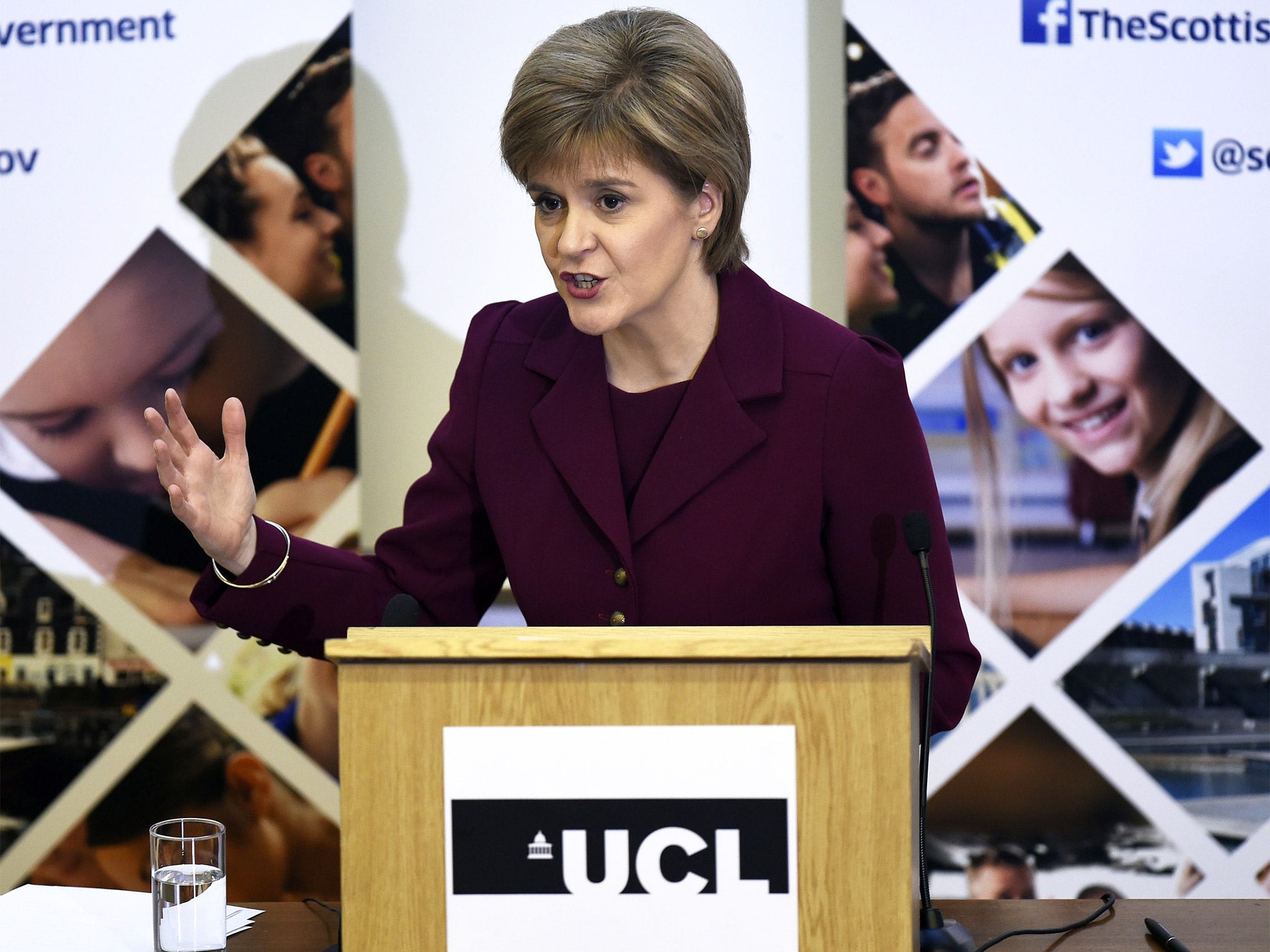Nicola Sturgeon: A 'modest' increase in public spending is needed. Austerity economics has failed
'Real misery is being caused to real people the country over,' says Scotland's First Minister

Greece’s Syriza party won power through a defiant refusal to accept more austerity. Nicola Sturgeon preaches a less radical message. Austerity economics has failed, she says – but her answer is for what she calls a “modest” increase in public spending, an extra 0.5 per cent a year, equivalent to £180bn by 2020, to mitigate “the most pernicious welfare cuts” and invest in infrastructure such as the NHS and high-speed rail.
Inequality is clearly a problem, and the Chancellor did miss his target for reducing the deficit. But with Britain showing the strongest economic growth among G7 nations, and employment rates comparing favourably with Europe, can Ms Sturgeon really argue that the Coalition’s economic policy is a total failure?
“If you look underneath those statistics,” she said, “what you find is – whether you’re looking at manufacturing, GDP per head, the level of real wages, productivity – all these things are at pre-recession levels. So the fundamentals are presenting big challenges.
“Then there’s the human costs of austerity. Real misery being caused to real people the country over.” She highlighted recent research by the IFS showing benefit changes harmed the poorest 10 per cent of households the most – and the disproportionate impact on women and disabled people. “Deficit reduction is important but so too is tackling inequality, so too is sustainable growth, so too is equipping our public services.”
The six-party election: key figures
Show all 12The Scottish Government’s own sums have been challenged by the falling price of oil. Sturgeon riles at the suggestion that fiscal plans for an independent Scotland might need finessing, with oil selling at just $51 (£33) a barrel.
“I find it an absurd argument,” she said, “that you wouldn’t say of any other oil producing country that because the oil price is low and because the oil price goes up and down that somehow the ability of that country to be independent is questioned.
“The reason Westminster can level that charge at Scotland is because Westminster has mismanaged those resources and we don’t have the oil [sovereign wealth] fund that Norway has.” Without such a rainy day fund to draw from, her response to the falling oil prices would be to borrow more. “If we were independent... we’d have all the other levers of independent governments like borrowing powers.”
Pressed on detail about the £180bn extra public spending she called for, she conceded: “It would be for the government of the day to decide how to spend that extra resource.”
Subscribe to Independent Premium to bookmark this article
Want to bookmark your favourite articles and stories to read or reference later? Start your Independent Premium subscription today.

Join our commenting forum
Join thought-provoking conversations, follow other Independent readers and see their replies